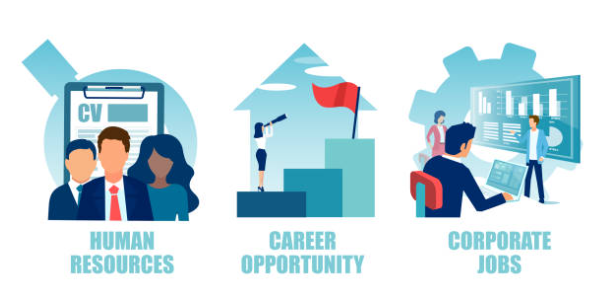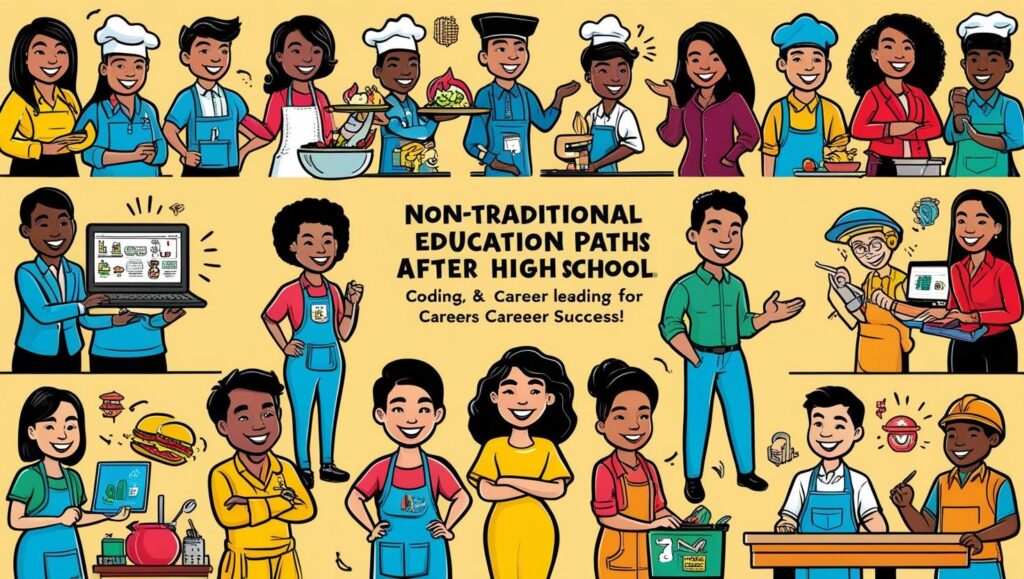In today’s rapidly changing economy, deciding on the right career path is more than a matter of what interests you and what doesn’t – it’s a convergence of passion and potential vs. personal goals and market forces vs. individual skills and long-term stability. The American job market is as diverse as the people looking for work, and while few people are comfortable in their current position — okay, let’s be honest, do you know anyone completely happy in their current job? Mastering professional development in the United States is also crucial for those who are about to start a career in or change careers in the US.
Perspective of Career Environment in America

US labor force The US workforce is highly dynamic and constantly changing as technology advances, economic conditions fluctuate, and consumer demands change. The long-term effect is that duties that were often seen as niche or insecure are the norm, and traditional jobs have been updated to incorporate modern tools and digital skills. That evolution offers job seekers a vast array of options, and has also made navigating careers a more strategic exercise.
Rapidly Expanding Industries Fueling the American Economy. From the medical field to technology, from education to the trades, the U.S. economy works in growth industries. These industries not only made up of strong job security but also provide a wide range of professional growth opportunities that can help you grow your skills and move up the career ladder with the right qualifications and experience.
Tech: The Catalyst of New Career Paths
Technology is one of the leading sources of new jobs in the US. Careers in software development, cybersecurity, and data science are booming, and the trend will only accelerate as businesses increasingly move their operations to digital platforms. A job in technology frequently needs a balance of education and experience inside and out of the classroom. Some, like software engineering, may require a bachelor’s degree in computer science, but others can break in through training bootcamps or self-paced certifications.
Furthermore, professionals in tech careers value ongoing education. With tools and programming languages growing with the times, professionals in this space need to keep updating themselves to stay relevant. With tech careers, that volatility can also give those with a love for problem-solving and creativity a lot more flexibility and earning potential.
Healthcare: Stability and Service-Oriented Professions

Healthcare is another industry with great potential for career advancement. Aging Population and Wellness. With an aging population and a greater emphasis on wellness than ever before, the demand for health professionals is steadily increasing. From registered nurses and physician assistants to medical technologists and healthcare administrators, a whole host of professionals in the US’s healthcare system keep everything ticking over nicely.
I knew what you meant but some healthcare jobs require an actual dissent or certification? But the investment tends to pay off in job security, a sense of purpose and opportunities for specialization. The health field is filled with opportunities for growth or promotions, which is optimal for anyone who has long-term goals in mind.
Business and Finance: Administration and Analysis Oriented
Business and finance careers are some of the most sought-after back-office jobs around. Careers such as financial analysts, marketing managers, and human resources specialists are required in virtually every sector. These positions usually require experience in business administration, economics, or related fields and solid analytical and communication skills.
Our careers in business have increasingly become more data-driven in recent years. Industry leaders are supposed to make sense of data, make strategic decisions, and turn on a dime to respond to market conditions. And as more businesses strive to make decisions on metrics, a hybrid of business savvy and technical calibre is particularly sought after.
Skilled Trades: In Demand, No Degree Required
White-collar jobs may get all the attention, but when it comes to the day-to-day work that keeps America running, elite “suits” and homegrown “blue collar” workers are equally vital in keeping the nation’s lights on and water clean. Electricians, plumbers, HVAC techs, and mechanics are all in short supply, meaning high demand and competitive wages in the job market. Unlike many professional jobs, fast-growing jobs are more likely to require an apprenticeship, a certificate, or some college, but not a four-year degree.
The opportunity to get into the workforce and get hands-on experience is one of the greatest benefits of a career in the skilled trades. Many trades also have entrepreneurship opportunities, enabling people to get into business for themselves and to be masters of their earning potential.
Training and Development
Whether we’re talking about accountancy or construction, professional development is key in the journey to career success. Certifications, online classes, workshops, and even advanced degrees can all help bolster your resume and open up new opportunities. In the United States, there is a robust lifelong learning culture, and employers are becoming even more interested in employees who demonstrate a desire to learn new skills on their own.
Career success is less the result of acquiring one qualification so much as constructing a portfolio of competencies. Mostly because students who have a desire to grow, change, move on, and be adaptable tend to advance quicker than others, via formal education, certs, or just on-the-job experience.
Steering Your Professional Path with Intent
What Are American Teenagers Supposed to Do with Their Lives? Navigating career paths in the US requires some self-knowledge, research, and planning. You just need to uncover the areas that interest you and play to your strengths. You also need to take an inventory of the job market, weigh the education and experience required, and then factor in your long-term goals.
In a rapidly transforming era, flexibility and curiosity are paramount. Career happiness isn’t only about financial success but also about feeling that you are aligned with your work, have room to grow, and are contributing to something meaningful. Whether as a first-time job hunter or a career changer vying for a fresh start, making the right decision at this crossroads lays the groundwork for a satisfying professional life.



